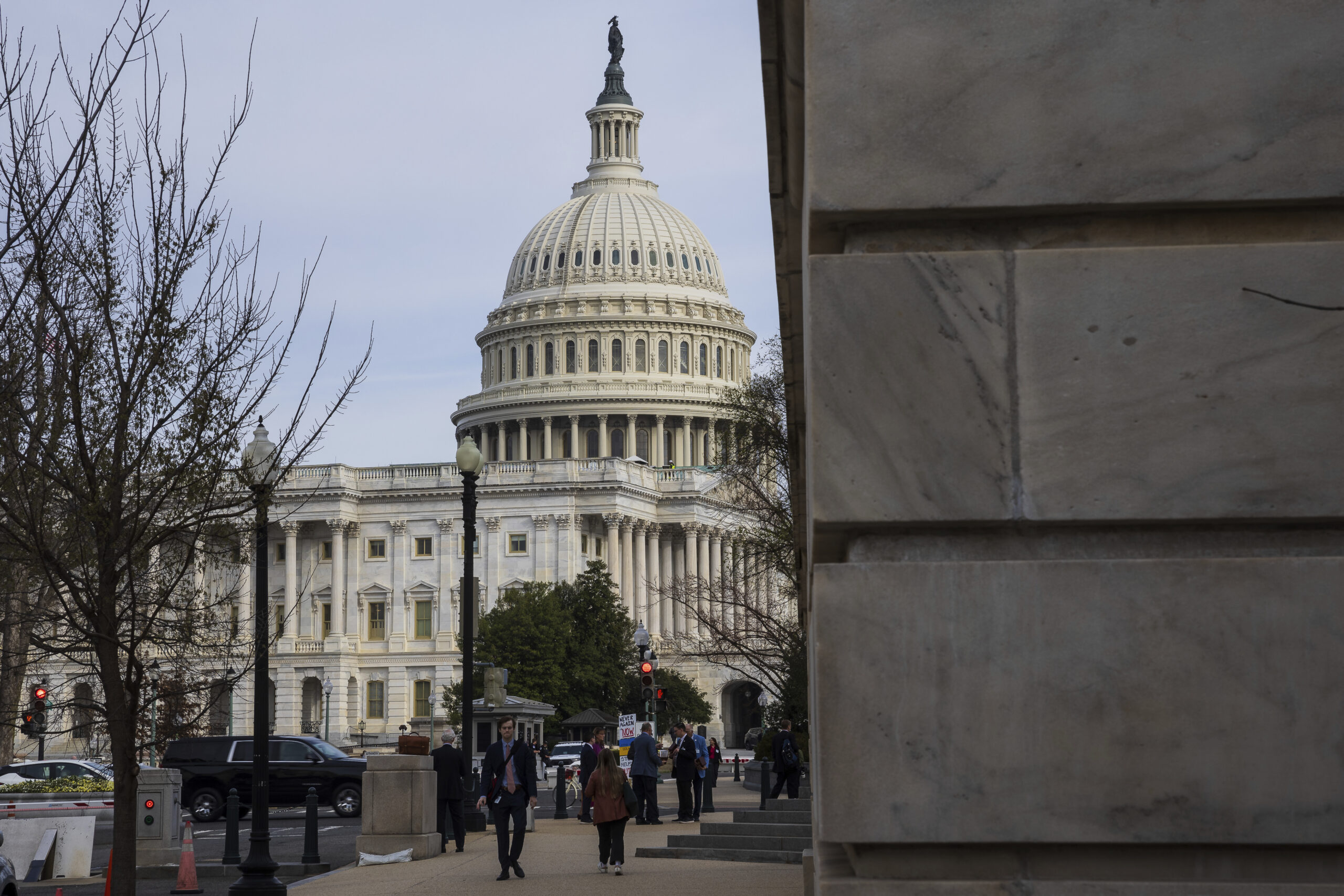

The resurgence of earmarks has divided Republicans as Congress grapples with a looming partial government shutdown and the choice for new Senate leadership in the fall.
As a second chunk of spending bills are expected to be revealed in the coming days to fund the departments of Defense, Labor, Health and Human Services, State, and Homeland Security, Senate Republicans remain at odds over more earmarks, or community project funding, which direct federal dollars to specific “pet projects” in members’ home states and districts.
Senate Minority Whip John Thune (R-SD) and Sen. John Cornyn (R-TX) have declared their candidacy for GOP leader after Sen. Mitch McConnell (R-KY) will step down after the 2024 elections. Sen. Rick Scott (R-FL) has said he is “seriously considering” entering the contest for the top job but has not made a decision.
Senate Republican Conference Chairman John Barrasso (R-WY) is running unopposed so far for the whip position, while Sens. Tom Cotton (R-AK) and Joni Ernst (R-IA) are facing off for the conference chair position. Sen. Shelley Moore Capito (R-WV) is running unopposed to serve as the next chair of the Senate Republican Policy Committee.
So far, of the declared candidates for any Senate GOP leadership position, Thune and Capito are the only two who have requested earmarks. Thune requested seven projects that totaled $116 million in the first six spending bills, while Capito, a member of the powerful Senate Appropriations Committee, requested nearly 600 projects, totaling about $1.8 billion across all the funding bills in fiscal 2024. The second set of bills has not yet been released, so it’s unclear which of Capito’s projects have been approved.
Of the 100 senators in the upper chamber, nearly 70% of the earmark requests came from Democrats, while 25% came from Republicans in the chamber, and about 5% came from independents who caucus with Democrats.
Other Senate Republicans who have requested earmarks beyond Thune and Capito are Sens. John Boozman (R-AR), Katie Britt (R-AL), Bill Cassidy (R-LA), Susan Collins (R-ME), Deb Fischer (R-NE), Lindsey Graham (R-SC), Cindy Hyde-Smith (R-MS), John Kennedy (R-LA), Jerry Moran (R-KS), Markwayne Mullin (R-OK), Lisa Murkowski (R-AK), Mike Rounds (R-SD), Thom Tillis (R-NC), Tommy Tuberville (R-AL), and Roger Wicker (R-MS).
However, many conservatives point out the government is now dealing with $34 trillion in debt and highlight while members of the House requested 5,000 earmarks, the Senate requested even more with more than 19,000 earmarks for fiscal 2024.
“I think if senators had to go to the floor and defend some of these, if they knew they might, I don’t think they would even offer them,” said Sen. Roger Marshall (R-KS), speaking with reporters.
While negotiating the latest spending bill that passed last week, a group of the Senate GOP’s right flank led by conservatives like Scott and Sens. Mike Lee (R-UT), Mike Braun (R-IN), and others attempted to resurrect a resolution to reaffirm a ban on earmarks, which was unsuccessful.
Senate Republicans voted in April 2021 to keep in place a Senate Republican Conference rule banning members from requesting earmarks. However, the vote was largely symbolic because those rules are nonbinding, allowing any Republican senator to still request them anyway.
“It is still the conference policy of the Senate Republican Conference that we are opposed to earmarks, and yet we’re returning to it,” Lee said at a press conference last week, flanked by Scott and Braun. “We’re returning it to our own detriment, but especially to the American people.”
Some Republican operatives believe the earmarks in the spending package could ultimately be a problem down the road during the Senate leadership race.
“There are plenty of Republicans who are very much against earmarks, so it could be risky to have someone running to represent the conference requesting them,” said a Republican strategist speaking on the condition of anonymity. “Look, these requests are not a bad thing; it shows the senators are advocating for their constituents, but it could be detrimental in a leadership bid when you have a portion of the party who are trying to cut back on spending.”
Sen. Mike Rounds (R-SD), who endorsed Thune to be the next leader of the party and also offered earmarks, defended the practice, arguing that lawmakers should be making the spending decisions for their constituents in their states.
CLICK HERE TO READ MORE FROM THE WASHINGTON EXAMINER
“I believe that I can do a better job than a bureaucrat in this administration about where the money should go,” he said, speaking with the Hill.
Lawmakers have not yet made a deal on this much larger raft of spending bills, and they are once again racing the clock before funding for those programs expires on March 22.






